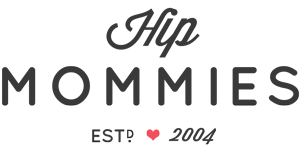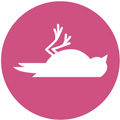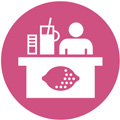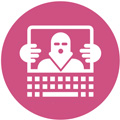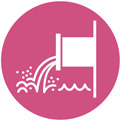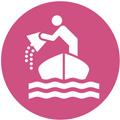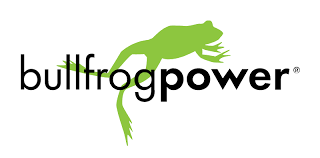At Hip Mommies, your family’s health & safety is our top priority.
We are vigilant reviewers of third-party safety testing reports and we make sure our products are safe for little ones. All products that we bring into Canada comply with existing safety regulations and standards.
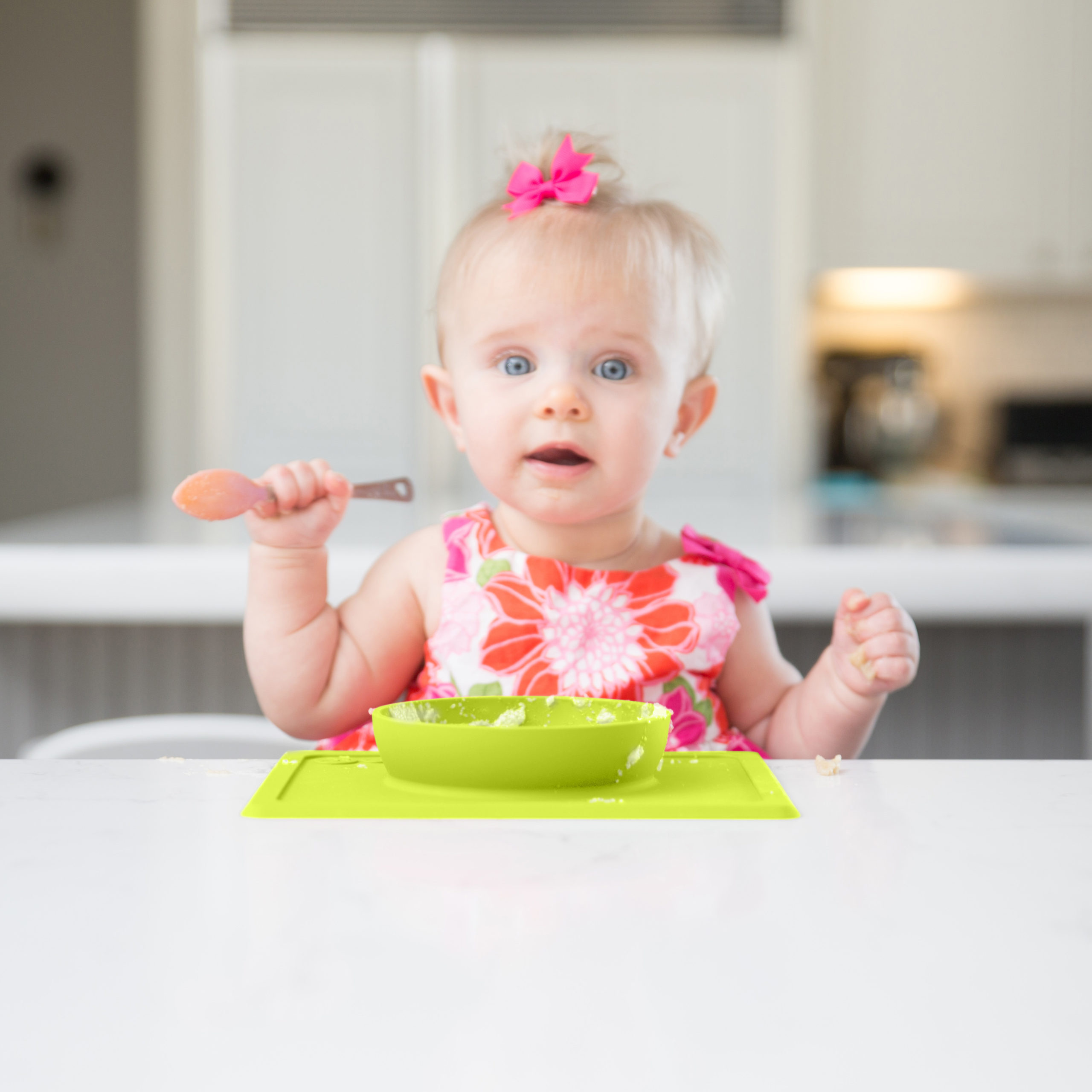
Why should you protect your family from counterfeit products? This is what you need to know.
There’s nothing wrong with searching for a discount code or better price…unless it comes at the cost of your family’s safety. We’re not being overly dramatic. We’re not protecting our profits. We honestly care about the health and safety of our customers.
We also care about our clients. The brands we represent sell thoughtful, safe products that are manufactured in a responsible way. That’s worth protecting.
When you find what looks like the same product you want to buy at a much lower price on another website or at another retailer, you just might be buying a counterfeit. If it seems too good to be true, it probably is.
The fakes often look like the real deal.
Don’t feel dumb if you’ve been fooled in the past. It really is hard to tell if a product is authentic. The job of a counterfeiter is to trick you into buying their fake. The products look identical and often, photography and copy are stolen from the authentic product’s website.
But the problem isn’t just on sketchy-looking websites and it’s not just online. Counterfeits are everywhere: eBay, Amazon, Big Box stores, Kijiji, daily deal sites, Facebook mom groups and in real life, too. Anyone can order a bunch of knock-offs (knowingly or unknowingly) to sell at pop-up shops or baby shows. And even discount stores that are supposed to sell real merchandise at a discount can be fooled into buying fakes.
Popular counterfeited baby goods are medication, sunscreen, lotions, shampoo (seriously), feeding accessories like ezpz, baby carriers, highchairs, clothing and accessories, even formula. Lots of your favourite baby brands have had issues with counterfeits.
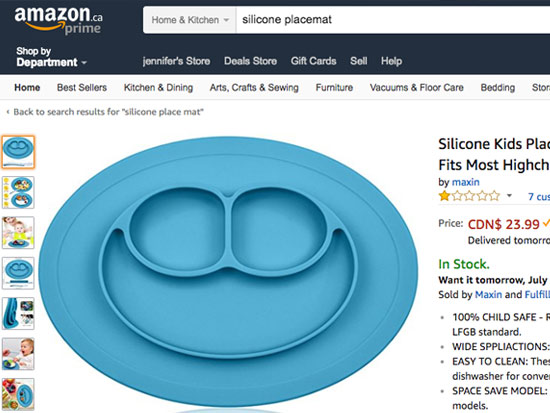
Counterfeits are not safe.
Our brands—and all companies legally selling goods in Canada—put their products through rigorous testing to meet with Health Canada’s safety regulations. These standards include testing for flammability and phthalates and hazards, like choking and strangling. At Hip Mommies, we review third-party safety testing reports for new products before we decide to partner with a brand.
Criminals manufacturing fakes of a product don’t do testing. And why would they? The product only has to look like the real deal. What’s inside, whether it will last or even if it’s safe isn’t important.
Counterfeiters also replicate the verbiage used on the authentic products packaging. So if something is labelled Food Grade silicone, BPA free, PVC free or FDA approved it does not mean it is. In fact this is impossible to claim without testing.
Supporting counterfeiters is damaging to the economy.
Canada’s counterfeit market is likely $20 billion to $30 billion a year, and most of this money is going to unethical, unsafe “businesses” overseas. This is not good for the Canadian economy. It leads to high unemployment and slow growth for businesses who are actually trying to do things right. Even interest rates and the cost of living are affected.
Bottom line: Counterfeiters can offer a cheaper price by avoiding necessary and expensive safety testing and compliance. They don’t have to hire lawyers, manufacture responsibly, use quality materials or pay fair wages.
Identity Theft.
While you may actually receive the counterfeit product you ordered online, many e-commerce sites are just there to collect your information then disappear. Your money and sensitive information are stolen. Even if you do receive the product you ordered, the site you ordered from may not be secure, meaning your credit card information and address can be seen by just about anyone.
Counterfeits are bad for the environment.
Just as counterfeits are not tested for safety, those harmful chemicals, toxic dyes and other unknown components used in manufacturing are most likely not being disposed of properly. This obviously leads to serious environmental pollution and makes our planet even more unsafe for our children.
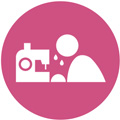
Counterfeit factories fund organized crime, have poor working conditions and use child labour.
The factories in China that make more than 80 per cent of counterfeits are controlled by organized crime, according to Lorne Lipkus, a lawyer and founding member of the Canadian Anti-Counterfeiting Network. These organizations could be financing terrorists and often use slave and youth labour. Would you let your six-year-old mix dangerous chemicals? These factories do. And the income made from counterfeit goods is used to fund other illegal enterprises, money laundering and may be linked to drug trafficking and other serious crimes. Criminals are attracted to counterfeiting as it is a high-profit, low-risk cash business.
Reputable Canadian and American companies that import products from China and other countries overseas visit factories regularly and ensure that the companies they work with maintain ethical working conditions.
A note about silicone.
A lot of the products we sell are made with silicone. Why? Dishwasher and microwave safe, easy to clean and impossible to break, silicone is a great, safe material for baby and pet products. But of course, the products we sell from ezpz (and other brands) have been manufactured responsibly with safe ingredients and put through rigorous testing.
Silicone products made quickly and without testing could contain lead (often used in bright colourants), phthalates and BPA. Poorly made products could contain choking hazards or fillers (versus 100% food grade silicone).
Want to protect yourself from buying from counterfeit goods? There are some things you can do to minimize your risk.
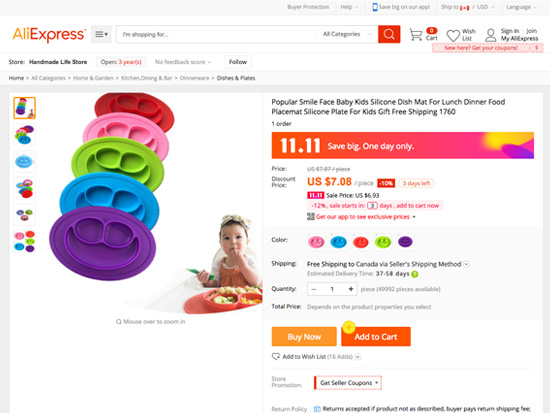
Check for spelling and grammar.
Whether on a website, a product package or the product itself, if the text is misspelled, wrong or just looks off, question it. Counterfeiters who can’t be bothered by testing, often don’t use spell check or check their facts, either.
Be careful on Amazon and be wary of Facebook ads.
Just about anyone can be a seller on Amazon. Before buying, check out who sells what you’re about to purchase, then google them. Not the manufacturer or authorized distributor? Don’t buy it. Also, beware of product reviews. Just like the products themselves, many are fake.
Counterfeit products are being sold by Facebook ads. They use videos and photos of the genuine products (we have found our child’s photos on Facebook being used to sell fakes.) and often the page has tens of thousands of likes (usually bought) so they look legit. These ads click through to illegitimate sites. We recommend not purchasing anything you see from a Facebook ad, just in case.
Shop Mindfully.
We’d never tell you not to shop small, but make sure you do your research. When you come across an independent retailer, pop-up shop or even a neighbour in a buy/sell group on Facebook with prices that are too good to be true, ask questions via email or in-person. Don’t be afraid to look rude. Your family’s safety is important and a good business person will understand that.
Shop and read carefully. Do your research. Be skeptical and trust your gut. If something about a website, shop or product seems off, it probably is.
Shop only at authorized retailers.
Before you click “buy” or even hand money over to a cashier, check the manufacturer’s website for the list of their authorized retailers/stockists/distributors etc. If they don’t have a list, contact them and ask.
If shopping online, look over the website closely.
Do they have a Contact us page, and does someone respond to your emails? Are their social media accounts active? Where do they say the items ship from? Are they using a web-based email like Gmail, Hotmail or Yahoo as opposed to a company email account.. that is suspicious. Reviews are a good indicator in some cases, but often reviews are moderated and the negative ones deleted. Even Amazon has issues with deceptive reviews. And check that the url uses an https:// rather than an http:// this is evidence of a more secure encryption.
Touch, inspect and feel.
This is why the internet is such a breeding ground for fakes. You can’t inspect the goods until after you buy. Usually a quick inspection will tell you if something is off about the quality. Does it look and feel high quality? Smell funny? Look for patent info, batch and model information, and check to see if the item has tags.
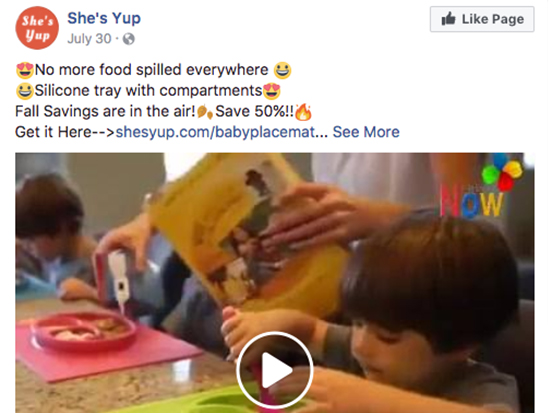
Special thanks to Today’s Parent for interviewing us for their story: Warning: Some of your baby products could be fakes
We work with some of Canada’s Most Passionate Small Businesses.
We work with retailers that have a brick & mortar storefront, and prioritize independent boutiques. We encourage you to support your local retailer when you can, because supporting small business is a big part of what we do.
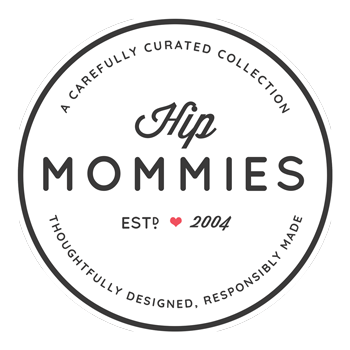
@ Hip Mommies 2023 | privacy & legal
